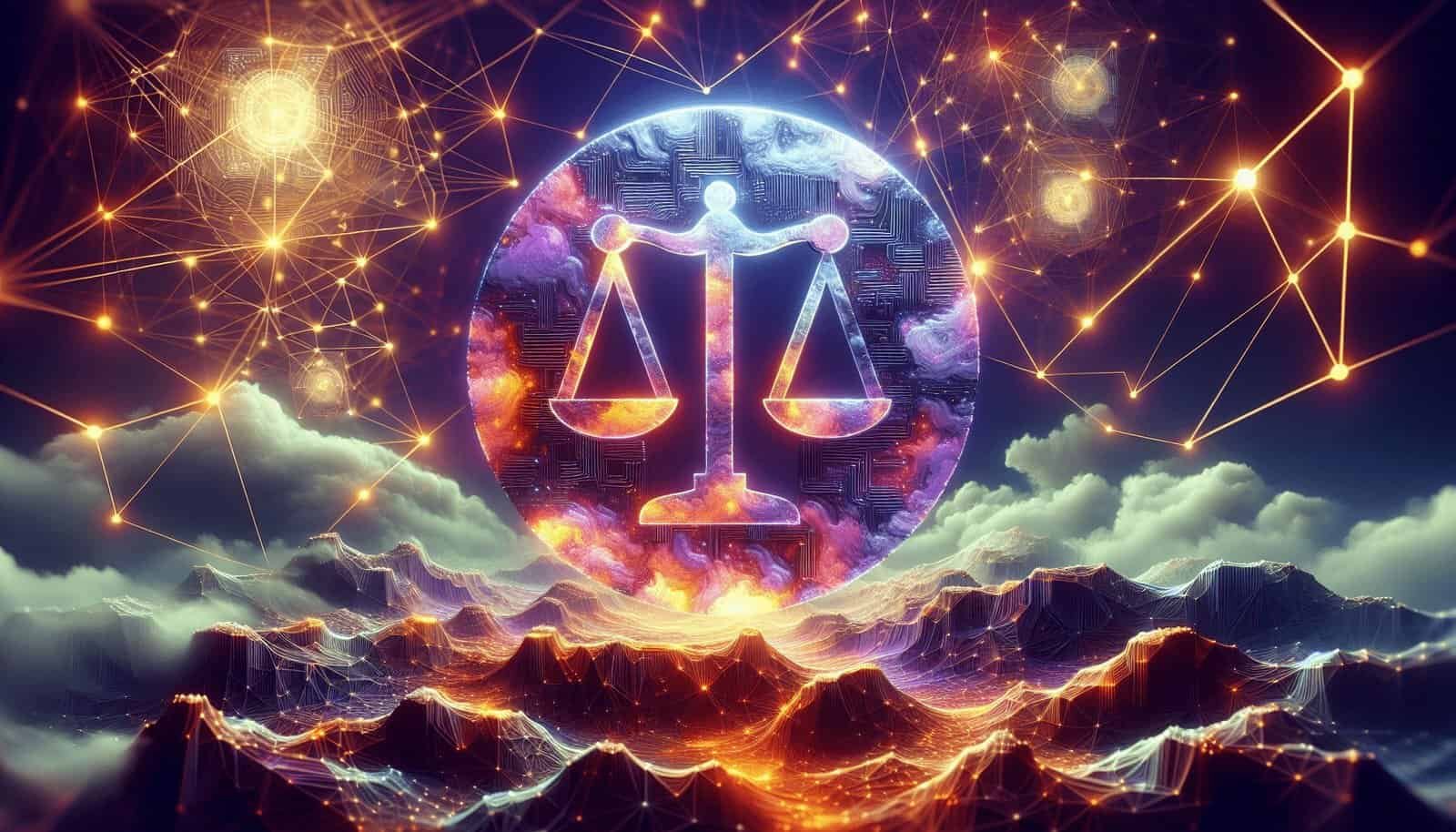Have you heard about decentralized governance and wondered which tokens could be the best for participating in such systems? Decentralized governance refers to systems where decisions are made by a collective of stakeholders through a transparent and open network. With the rapid growth of blockchain technology, several tokens have emerged to facilitate decentralized governance. This article will explore some of the most noteworthy tokens in this space and provide insights into their unique features and functionalities.

Understanding Decentralized Governance
Before we dive into the tokens themselves, it’s essential to understand what decentralized governance is all about. At its core, decentralized governance eliminates the need for centralized authority, allowing decisions to be made by community stakeholders. Decisions made through decentralized governance are often executed using smart contracts on the blockchain, ensuring they are tamper-proof and transparent.
By participating in decentralized governance, you have a say in how a project develops over time. This could include voting on protocol upgrades, deciding on development priorities, or determining how funds are allocated.
How It Works
Decentralized governance often operates through a token-based voting system. Token holders can vote on various proposals, with their voting power proportional to the number of tokens they hold. This empowers the token holders collectively to steer the project in a direction that reflects the community’s interests. It ensures that governance is not only democratized but also efficient.
The Importance of Governance Tokens
Governance tokens have become an essential part of blockchain ecosystems. They provide power to the community to influence major project decisions, maintaining a check and balance system within decentralized frameworks. Unlike traditional shares, governance token holders aren’t just investors—they are active participants in the strategic direction of a project.
Key Features of Governance Tokens
As you consider which tokens might be the best for decentralized governance, it’s important to know what makes these tokens distinct and valuable in the governance landscape. Here are some key features to look out for:
Voting Rights
Governance tokens grant voting rights to their holders. This means that you can vote on proposals regarding the operation and future of the project. The more tokens you have, the more influence you possess.
Indirect Revenue Streams
Although governance tokens primarily provide voting rights, some projects also offer financial incentives to token holders. This could include a share in the project revenues or fees generated by the network.
Influence on Protocol Changes
With governance tokens, you can influence the technical and operational aspects of the protocol. By holding these tokens, you become part of the ecosystem that determines future upgrades and changes.
Exploring the Top Governance Tokens
Now that you grasp the fundamentals of decentralized governance, let’s examine some of the leading tokens in this space. These tokens not only bolster the idea of community-driven project evolution but also embody various innovative concepts unique to their respective blockchains.
1. Maker (MKR)
MakerDAO is one of the most popular decentralized finance (DeFi) projects, and MKR is its governance token. Holders of MKR can participate in decision-making processes to modify the Maker Protocol. It’s a great example of how decentralized governance functions in the world of DeFi.
- Key Role: MKR holders vote on parameters that impact the Dai stablecoin, such as risk parameters and debt ceilings.
- Incentives: Although primarily a governance token, MKR is also used as a backstop in the Maker System, ensuring the stability of the system by absorbing losses.
- Community Impact: The emphasis is on community-driven governance, involving votes on critical operational elements and upgrades.
2. Compound (COMP)
Compound is another DeFi protocol that has significantly influenced the decentralized governance sphere. The COMP token is central to its governance process.
- Key Role: COMP holders propose and vote on network upgrades, changes in borrowing and lending parameters, and other operational decisions.
- Decentralization Focus: Compound is a notable example of how power can be distributed across token holders, ensuring that no single entity has overarching control.
- Rewards Mechanism: Participants earn COMP tokens by using the Compound platform, incentivizing users to engage with and govern the network.
3. Aave (AAVE)
Aave is a non-custodial liquidity protocol where users can participate in lending and borrowing activities. Its governance aspect is facilitated by the AAVE token.
- Key Role: AAVE token holders can propose, discuss, and vote on new features, protocol upgrades, and changes to the economic incentives.
- Flexibility and Innovation: Aave’s governance protocol encourages community-led innovation and adaptative changes to the ecosystem.
- Safety Module: AAVE tokens play a role in staking safety module protocols to protect the system from under-collateralization events.
4. Uniswap (UNI)
Uniswap stands out as one of the leading decentralized exchanges and a pioneer in automated market maker protocols.
- Key Role: Governance in Uniswap is facilitated through the UNI token, allowing holders to make decisions about the protocol’s development.
- Community Governance: UNI holders propose changes and modifications that can include governance dynamics and fee structures.
- Empowerment and Inclusivity: The project emphasizes broad community participation, with a large supply initially distributed to users to establish a far-reaching governance structure.
5. Polkadot (DOT)
Polkadot offers a distinct approach to blockchain interoperability and governance. DOT is an integral part of its ecosystem.
- Key Role: DOT holders can propose new ideas, vote on existing proposals, and participate in council elections.
- Multichain Benchmark: As a multichain framework, Polkadot facilitates interoperability across diverse blockchains, enriching governance via cross-chain proposals.
- Adaptive Governance: Polkadot’s governance is adaptive, enabling swift implementations based on proposals decided by majority voting.
6. Tezos (XTZ)
Tezos is a versatile blockchain known for its on-chain governance capabilities. XTZ holders are empowered to influence the network’s development path.
- Key Role: XTZ token holders can vote on protocol amendments, offering a flexible mechanism for upgrading the network without outside interference.
- Formal Governance Process: Tezos uses a formal and structured governance procedure encompassing proposal, exploration, and promotion phases.
- Proof-of-Stake Influence: As a PoS blockchain, stakers with XTZ tokens contribute to both network security and governance, merging the two fundamental roles.
Evaluating Governance Tokens: A Comparison
You’re probably wondering how to choose the right token in this space. Here’s a table summarizing some vital points about these governance tokens:
| Token | Role & Functionality | Community Involvement | Unique Features |
|---|---|---|---|
| MKR | Stablecoin management and risk control | High | Acts as a backstop for system losses |
| COMP | Decision-making for lending/borrowing parameters | Medium | Earned by participation in the network |
| AAVE | Protocol upgrades and feature proposals | High | Supports staking for system security |
| UNI | Decentralized governance of exchange parameters | High | Large user-driven governance scope |
| DOT | Blockchain interoperability and council elections | High | Cross-chain proposals and adaptive governance |
| XTZ | On-chain protocol upgrades and governance | High | Formal, structured governance procedure |

Considerations for Choosing Governance Tokens
Selecting a governance token involves understanding the project’s vision, community dynamics, and how active and rewarding governance participation is. Here are some factors you might consider:
Community Activity
A vibrant and active community often translates to more dynamic project development and an enthusiastic governance process. The more involved the community, the more valuable your participation becomes.
Reward Mechanisms
Some projects provide tangible rewards for active governance participation. While not all projects offer financial incentives, those that do can add an extra layer of attractiveness to their governance tokens.
Long-term Viability
Consider whether the project has a sustainable model and long-term vision. Token utility, network security, and adaptability are crucial when assessing lasting governance viability.
Project Alignment
Ensure the projects behind the tokens align with your values and objectives in the blockchain space. Engaging in a community that reflects your interests can enhance your governance experience.
Challenges of Governance Tokens
While governance tokens offer pronounced advantages, it’s vital to understand the challenges investors typically face:
Voter Apathy
Voter participation is crucial to effective governance. However, token holder apathy can stymie decision-making processes, leaving proposals unaddressed or passed without adequate oversight.
Centralization Risks
Despite their decentralized nature, governance tokens can ironically lead to centralization if a small number of holders accumulate a majority of the tokens, skewing influence away from the broader community.
Complexity of Governance Proposals
Some governance systems might be complicated, needing technical understanding and analysis. This can alienate non-technical users from participating effectively, limiting the potential range of opinions and perspectives.

Conclusion
Navigating the world of decentralized governance tokens involves understanding their multifaceted nature and the intrinsic value they provide to blockchain ecosystems. From empowering communities to leading innovation, each token brings something unique to the table. As you venture into this space, weigh factors such as community engagement, reward structures, and alignment with your blockchain interests to guide your choices.
Decentralized governance is a fascinating and empowering facet of the blockchain world, and by engaging with these governance tokens, you can help steer the future of blockchain projects. Whether it’s a DeFi initiative on Ethereum or an interoperability solution on Polkadot, the power is truly in your hands.

